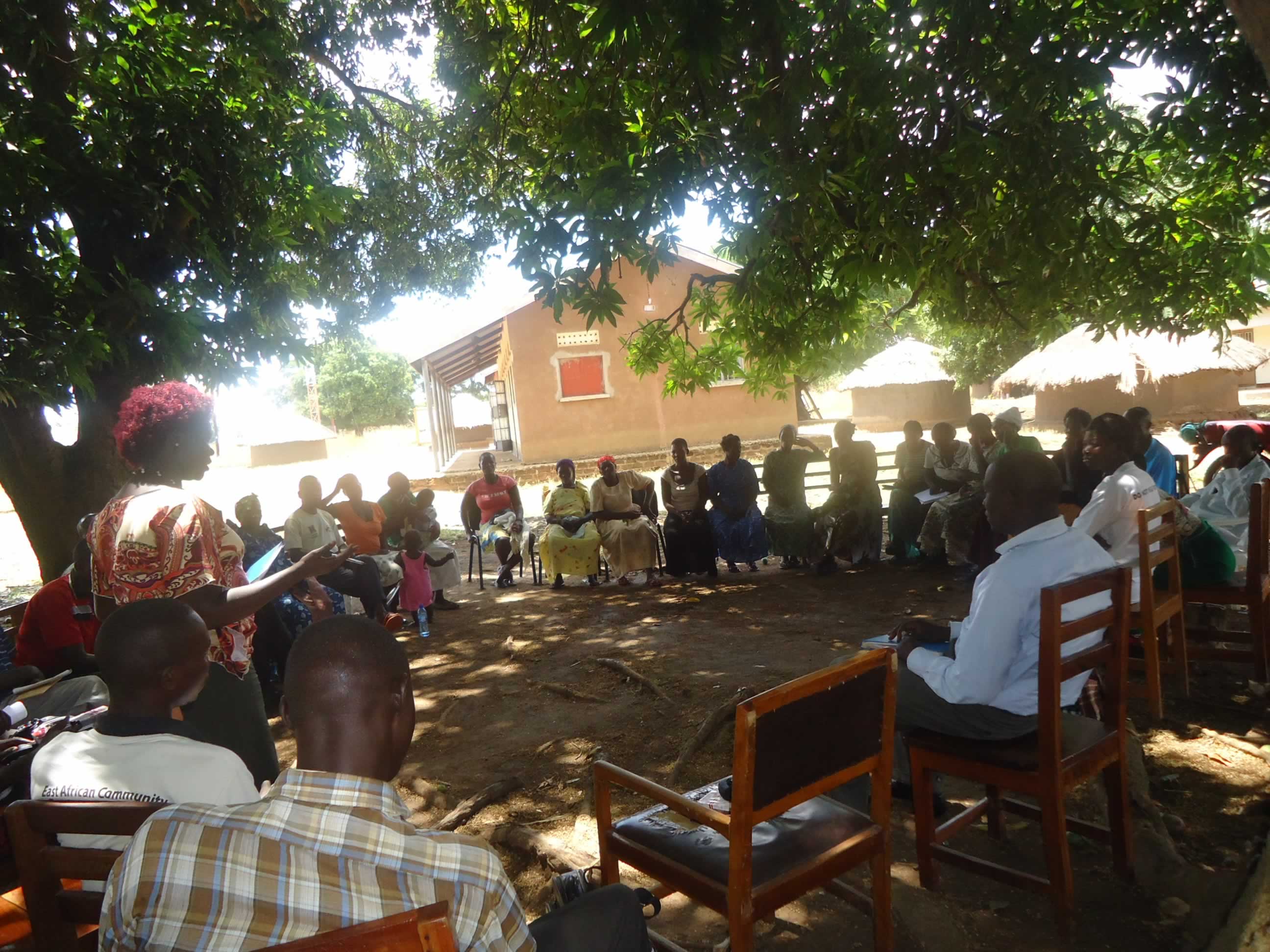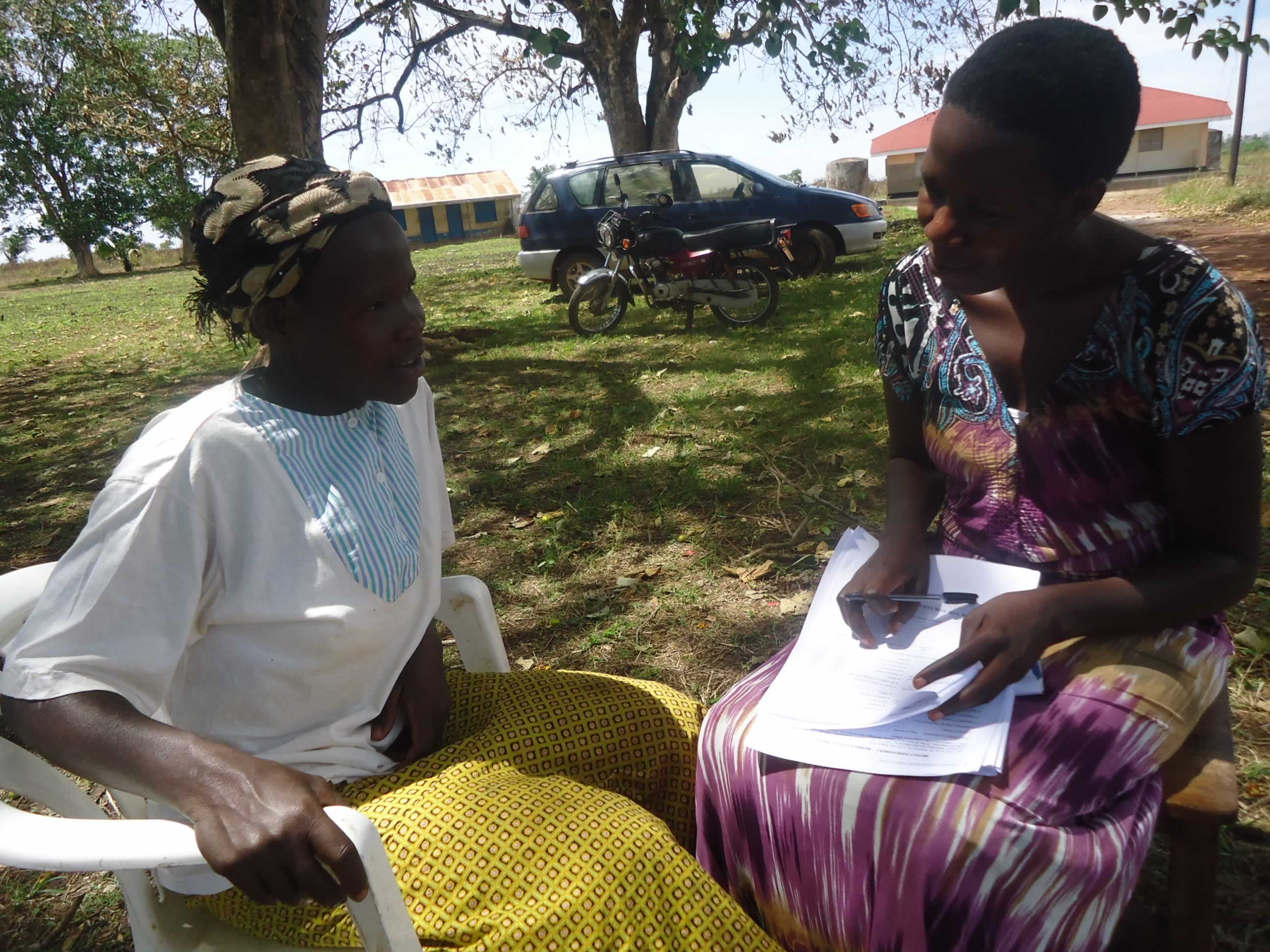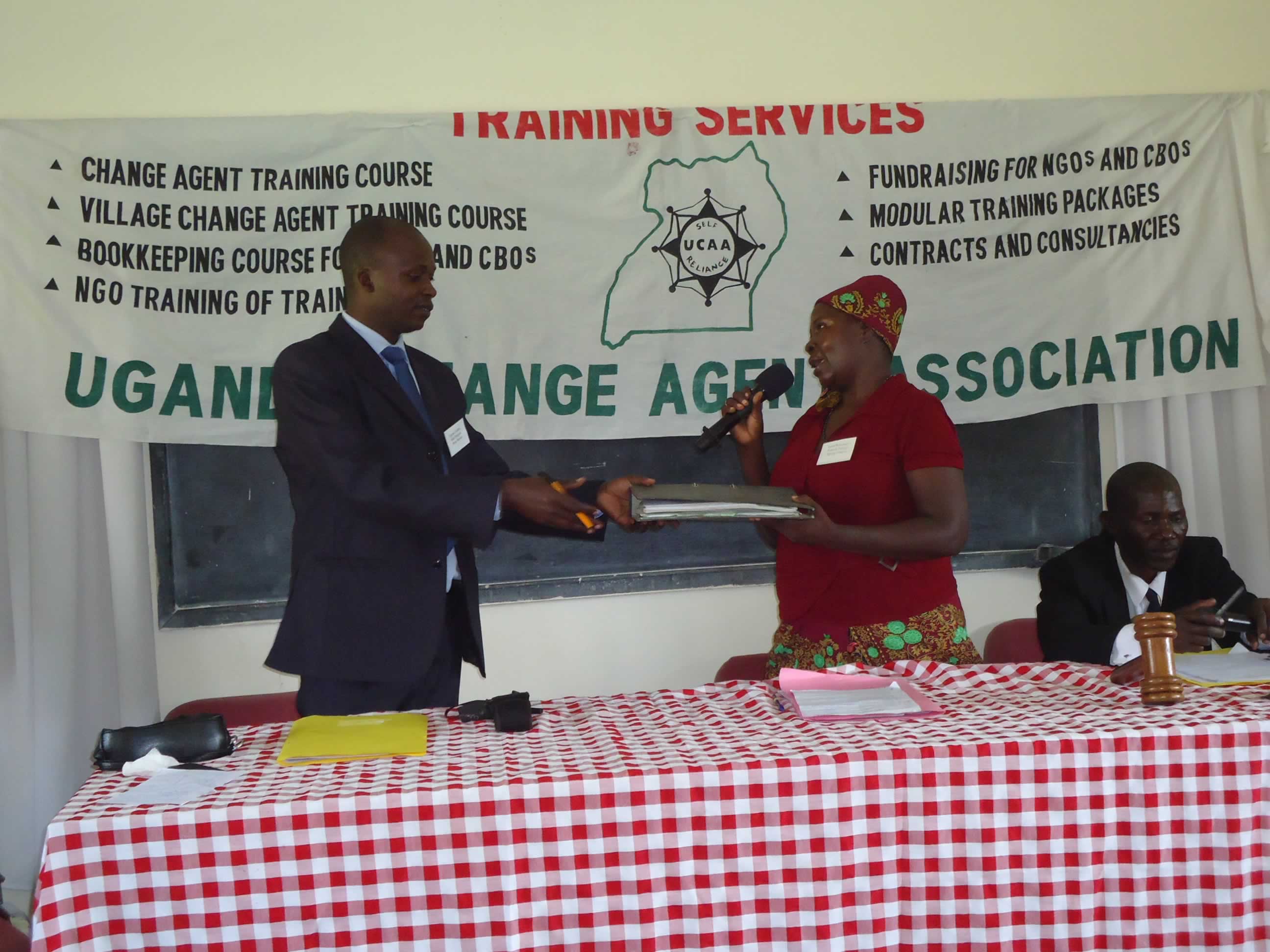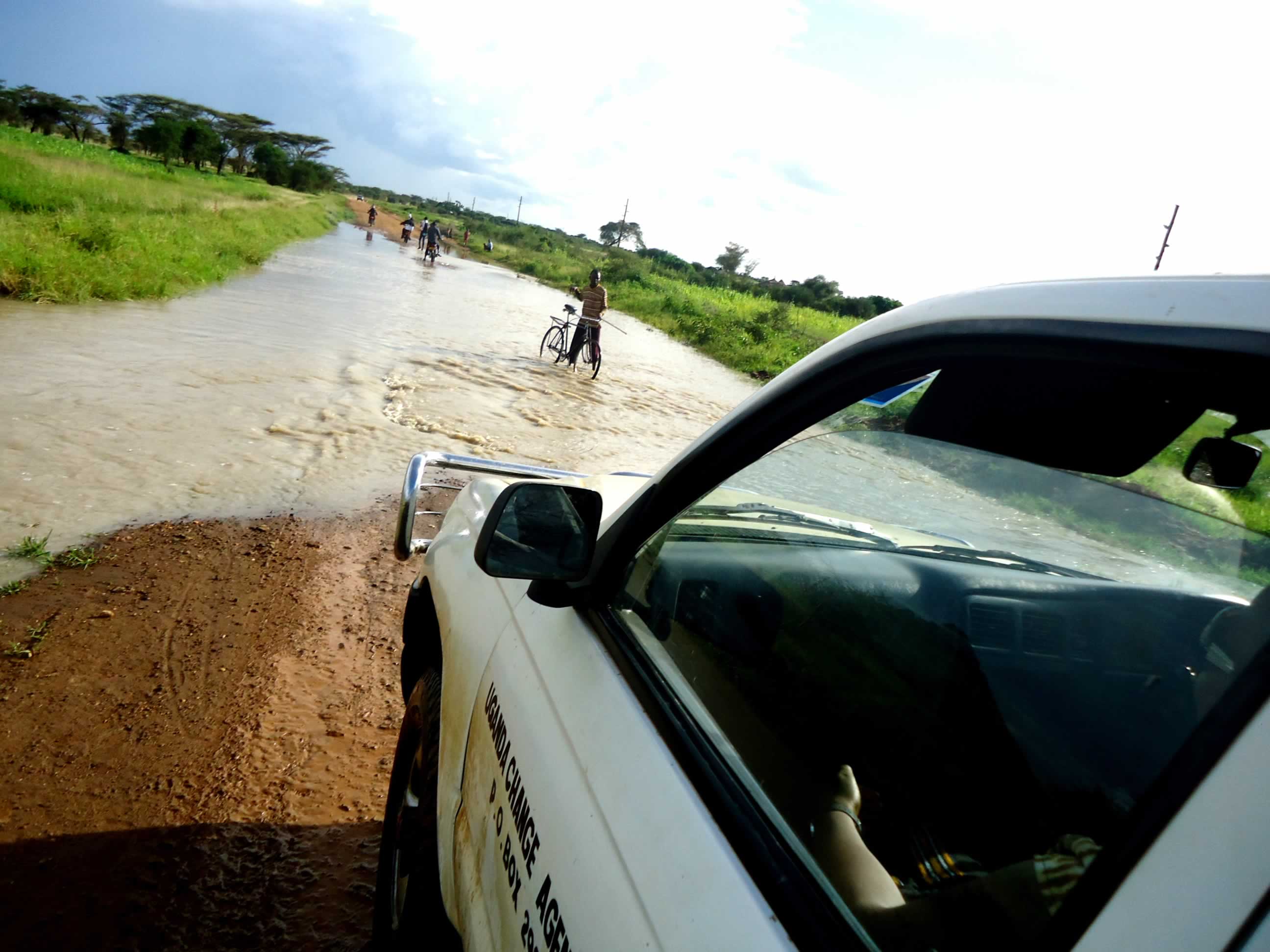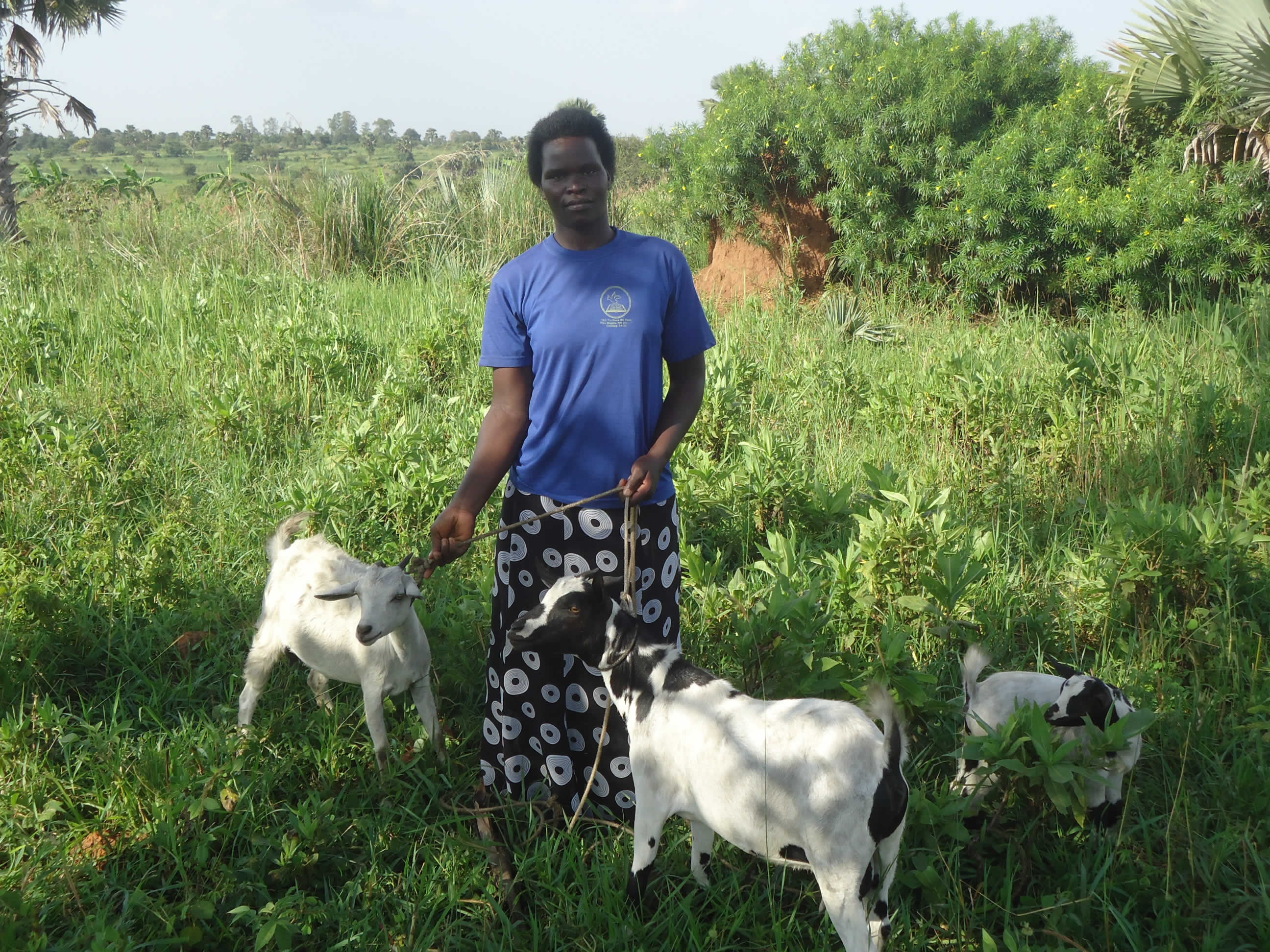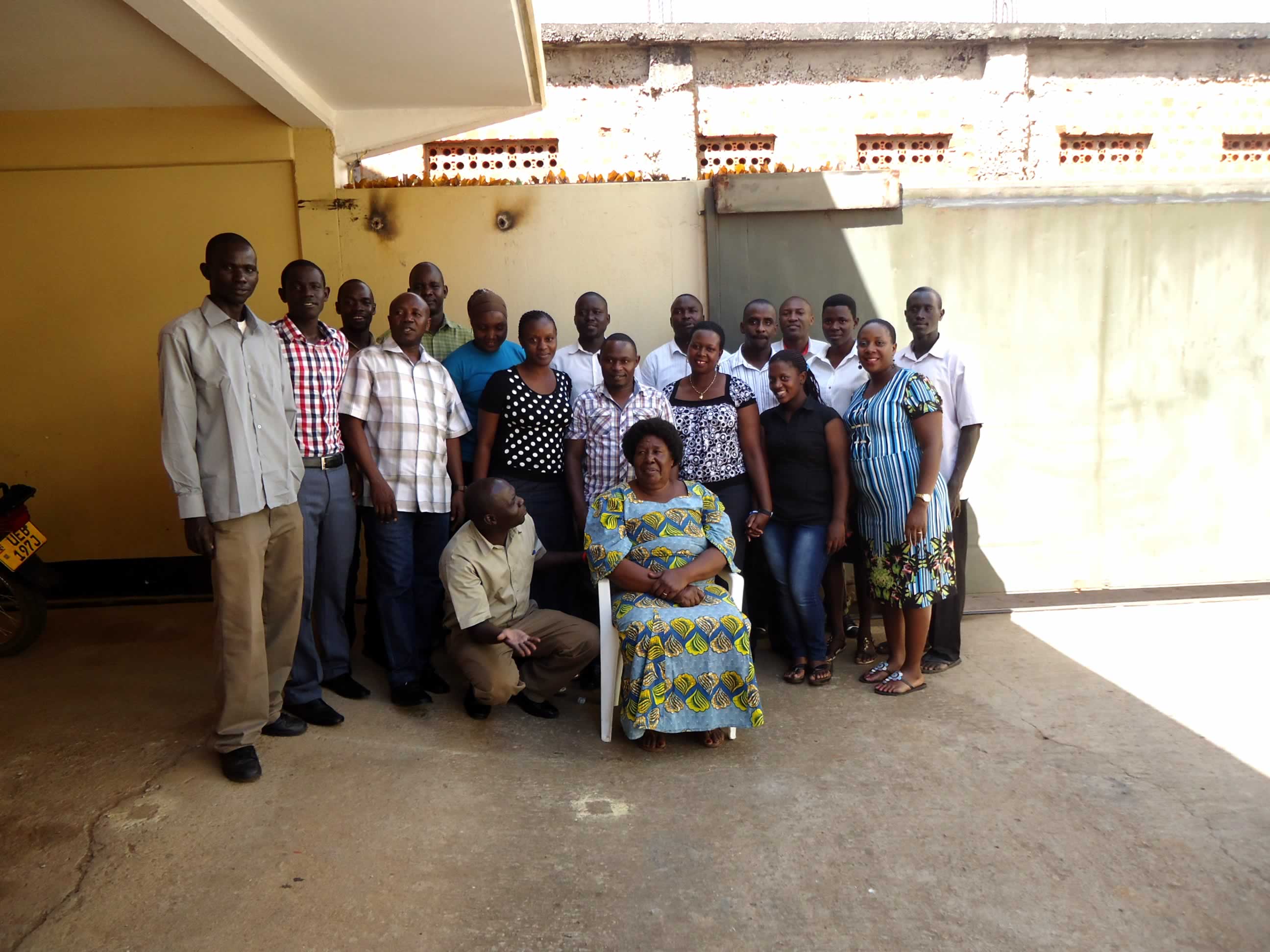Style Switcher
Layout options
Primary Color


Search
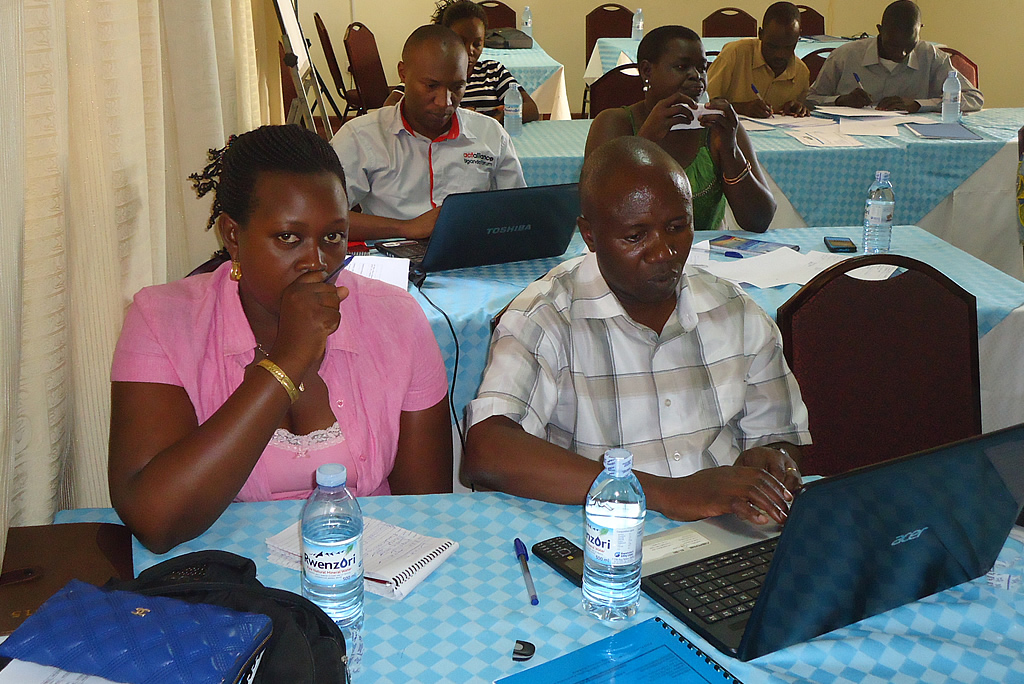
Annual Summary Report 2013
Introduction
The year 2013 was generally a busy one for our programme work but we managed to achieve what was required though with little funds. UCAA was funded by Finn Church AID, ICCO, and from other local sources as well. With the help of these funds, UCAA trained Village Change Agents in Gulu and Oyam districts, Village Savings And Loan Associations in Gulu, Oyam, Katakwi and Napak districts, Training in best agricultural practices for Gulu amd Oyam, Group Management trainings in same districts and training in community based monitoring and evaluation in Napak and Katakwi districts. UCAA trained a team of 60 Volunteers who conducted an assessment on the learning capabilities of children aged 4-16 years in Kasese district.
Key result areas in 2013
POOR MEN AND WOMEN ADOPT THE CULTURE OF SAVINGS AND ARE ABLE TO INVEST IN AND MANAGE VIABLE INCOME GENERATING ACTIVITIES
Community mobilization was the first field activity conducted. This created awareness among project beneficiaries and other stakeholders. The team at UCAA including the Executive Director, The Programme Director and the Programme Officer moved to Gulu and Oyam in May 2013. In both Districts, the team visited the offices of the District leadership including the Resident District Commissioner to introduce the project. These meetings were preceded with other meetings at the sub-county level (target sub-counties for project implementation). The District officials approached welcomed the project and promised support in terms of creating conducive environment for UCAA activities in the said districts.
TRAINING IN VILLAGE SAVINGS AND LOANS ASSOCIATION (VSLA)
VSLA Training in Oyam
A total of 22 participants were trained and were drawn from Alege and Odia Villages. One UCAA intern student and a change agent were also trained. This training took place in white house hotel in Oyam.
The training objective was to build capacity in developing and managing Village Savings and Loan Associations among Change Agents and the self-help groups that they are working with. The Key output of this training was 20 Rural Men and Women from the two target Villages equipped with VSLA skills. The acquired skills are to benefit 20 households with about 100 people at an average of 5 members per households as first beneficiary and later on the community of Alege and Odia villages as second beneficiary.
Training in VSLA Methodology in Gulu
A total of 22 participants were trained and they were drawn from Kiceke and Lakwela Villages. The training objective was to build capacity in developing and managing Village Savings and Loan Associations among Change Agents and the self-help groups that they are working with. Output was 20 community members with skills in VSLA.
The members who were trained into VSLA skills were given some VSLA boxes and pass books. A total of 12 VSLA boxes instead of 20 as per budget were given to 12 groups in both Gulu and Oyam.
VSLA training in Katakwi and Napak
These trainings were sponsored by ICCO. UCAA organized trainings on VSLA in Katakwi and Napak. Participants had been carefully selected as per project requirements. A total of 11(4 male and 6 female) including 5 Youth (3female and 2 males) participants were trained and they were all drawn from Usuk Sub-county. (Usuk is the sub-county of project implementation in Katakwi district).
For Napak a total of 10(5 male and 5 female) participants were trained and they were all drawn from Ngoleriet Sub-county. (Ngoleriet is the sub-county of project implementation in Napak District). The training built capacity in developing and managing Village Savings and Loan Associations among the leaders of the self-help groups and the members that they are working with. These skills will be transferred to group members in order to result into personal and group development. A total of 20 (9 males and 11 females) out of the 60 targeted members to be trained on the project in 3 years have so far been trained in the 1st Year.
VSLA boxes and pass books
Following the agreement and project budget, UCAA was to distribute 10 VSLA boxes and 300 passbooks to VSLA groups of trained participants in Katakwi and Napak districts. UCAA distributed 5 VSLA boxes and 211 passbooks to VSLA Groups in Katakwi district; where as in Napak, 5 VSLA boxes and 244 passbooks were distributed to VSLA Groups.
TRAINING IN BEST IMPROVED AGRICULTURAL PRACTICES
Training On Improved Agricultural Practice in Oyam
A total of 22 participants (11 males and 9 females) were trained and had been drawn from Alege and Odia Villages. One intern student and a change agent were also trained. The objective of the training was to equip participants with skills in improved agricultural methods. The products of this training have now started establishment of Kitchen gardens, planting improved seeds and others in rows and clearing their garden. The Key Output was same as for VSLA training. The Facilitator was a NAADs coordinator in Oyam.
Training on Improved Agricultural practices in Gulu
A total of 22 participants were trained and they were drawn from Kiceke and Lakwela Villages. It was facilitated by the Paicho Sub county NAADs Coordinator. One intern student and a change agent were also trained. This training took place in Multi-choice in Gulu. The gender balance for this training was 50%: 50%. Participants were taught the skill that enhances food security, nutrition, income and environmental protection. The Key action points were 1) for the participants to train their fellow community members and improve on their gardens 2) To establish kitchen gardens for nutritional boosting in their households.
Village change agent training (VCAT)
UCAA received funds from FCA to conduct a Village Change agent training in the target districts of Oyam and Gulu in Uganda. A VCAT course is a 28 non residential course. The training topics were organized under the following main headings: Introduction to cash book accounting, communication and facilitation, poverty analysis, development theory, gender issues, conscientisation, working with groups, group savings and credit and income generating activities. A total of 41 participants including 21 females and 20 males were successfully trained as community agents of change in Oyam and Gulu districts. It was the first village change agent training in these sub counties. The participants appreciated and promised to utilize the knowledge and skills acquired for their own and community development.
POOR MEN AND WOMEN ABLE TO PARTICIPATE IN LEADERSHIP AND DECISION MAKING ORGANS AND PROCESSES IN THE COMMUNITIES.
Group management training
Some Mobilization for the group management was done. This Mobilization enabled UCAA to have a Bank for those to attend the Group management training during the second half of the year. Four trainings were conducted instead of two. This followed a request from the districts that a second training in group management was necessary. UCAA sought permission from FCA to utilize funds meant for the National delegates' assembly and it was granted. 80 community members 40 from each target district were trained in group management training.
District assemblies
Two district assemblies in which Change agents came to account to each other were held one for Gulu and another for Oyam. During these assemblies, UCAA had to account to its members too and giving updates to the membership in the project districts on the FCA project and what was happening to UCAA country wide. The Change Agents also presented their progress reports to UCAA especially their work with the community self help groups and personal development initiatives. They also presented some community needs to UCAA that they felt UCAA could help them to handle in the areas of land rights or issues, vocational education especially for child mothers. A total of 30 change agents attended the district assemblies.
District review meetings
District review meetings were conducted in the two project districts .These meetings were attended by the project beneficiaries, Community members, UCAA staff, Local leaders and UCAA members of the Board. Review meetings were helpful to the project implementation because they provided solutions to some challenges such as the distribution of the few VSLA boxes as compared to the number of beneficiaries. It was through the review meetings that a way forward for the distribution of the few VSLA boxes was reached. Review meetings were again very helpful in identifying gaps and advising the project implementers on how to go about them.
Visit of the project sites by members of the UCAA Board of directors
The project sites were also visited by members of the UCAA Board of Directors. The Board visits added some value to project implementation in form of project Visibility amongst the political leaders and the project communities. The Board members were very appreciative to FCA for supporting the northern rural community that had suffered for long to transform their lives.
DIALOGUE MEETING
Under its conflict and transformation project funded by ICCO, UCAA conducted 2 dialogues, one in Katakwi at the Sub county headquarters of Usuk and another in Napak at Kangole Boys in Ngoloriet Sub County.
Dialogue in Katakwi
Attendance at the dialogue in Katakwi attracted 106 (53 males and 53 Female) Participants. Key officials in the District who attended were The RDC, the secretary for health, the Secretary Health in the Local council V, the Assistant Community Development Officer for Usuk Sub county, The Local council 111 Chairperson of Usuk Sub-county, the Community Development Officer Of Usuk Sub-county, the Sub-county chief, and the women councilor Usuk sub-county . Cluster members from TEWPA also attended, and the community members of the Sub county and other neighboring sub counties attended the dialogue
OUTCOMES
- The dialogue brought a realization of the community members that all health staff in Katakwi goes through the normal recruitment and the public service has never recruited unqualified staff. This cleared the fact that some health staff in the Usuk sub county may not be well qualified,However, St Anne, a private health Unit in the Sub County was to be looked into by the secretary health present at the dialogue who promised to take it up in order to correct any anomaly which could be in the staffing of the health centre.The dialogue recognized malaria as the leading killer disease in the area but also reiterated the fact that health experts always try to disseminate information on precautionary measures like sleeping under mosquito nets, slashing bushy compounds etc. through the dialogue the communities were urged to take up this as their own responsibility.
- The Resident District Commissioner of Katakwi Mr. Joe Arwata, was very appreciative of the work done by the cluster. Thanking UCAA on behalf of the Teso-Karamoja Cluster, Mr. Arwata Said UCAA was in line with Government Policy of Public Private Partnership.
Dialogue in Napak
The Dialogue in Napak district attracted 76 (44 males and 32 Female) Participants. The Officials who turned up were the Assistant District Engineer, the Secretary Works at Local council V, the Sub-county chief, probation and welfare officer representing the District Community Development Officer and the women councilor at sub-county level, secretary works Ngoleriet sub-county, The Assistant Community Development Officer Ngoleriet representing the Community Development Officer and the LC111 Chairperson Ngoleriet sub-county. Members of Uganda Debt Network and TEWPA also attended. The rest were Ngoloriet Community members.
OUT COMES
The Dialogues in Napak enabled the community and district local administration to the following common understanding.
- Some roads in the district are maintained by the central government, others by the district Local government and others were community roads. Those mostly appalling condition were the community roads. The affected community roads were Lokutuk-Narengo 4km, Kaluthum-Kangole 900m but the Samaritan Purse had ealier on worked on Kangole –Kautakou road. A presentation from the Napak district engineer on the Status of roads in the district indicated that the following roads Ngoloriet S/County were being maintained periodically; Loputuk-Arengereng, Nasike-Nariamaregae and Lomerimong-Kotido Rd.
- Ownership of roads was seen as key and both the road committees and Change agents are continuously sensitizing the communities to own their roads. Sensitization on this was agreed upon to be carried at all levels. To safe- guard community roads from being vandalized by bad people, especially those who block them, create potholes, Ngoleriet Sub County was to come up with by-laws in the use, maintenance and supervision of community roads. The forum was also a platform for the District Local government Leaders to be able to meet community and pass important communications such as encouraging the communities to be united cooperate with Government, ensure that democracy was implemented correctly by voting wisely and not voting for sugar, Soap etc.
SOCIAL CAPITAL MOBILIZED THROUGH THE ACTIVE PARTICIPATION OF POOR RURAL MEN IN SELF HELP GROUPS
Training on group formation in community based monitoring and evaluation in Katakwi and Napak
The training in Katakwi was conducted between 11th and 12th July. A total of 20 participants (5 male and 15 female) were trained and all were drawn from Usuk sub-county. The training in Napak took place between 8th -9thJuly. A total of 20 participants all drawn from Ngoleriet Sub County were trained. Of these, 10 were female and also 10 were male. A total of 40 (15 males and 25 females) out of the targeted 120 to be trained in three years have so far been trained. Total youth participants were 14 (6 males and 8 females).
Change agent skills
Induction in Change Agent Skills was conducted to some community members of Usuk Sub County in Katakwi and Ngoleriet Sub County in Napak. Attendance was 30 community members of Usuk and 28 of Ngoleriet Sub County in Napak. Participants were taken through the SRPD methodology; evidence based testimonies which helped them to realize the development potentials around them. Change Agent skills were meant to help community members be able to relate own issues with Service delivery in their respective sub counties.
Service delivery
Induction on Service delivery helped the community members to understand what it means by Service delivery and bring to their realization the various services that has been and not been available to their communities. The facilitators of these trainings were sourced for offices of the District Community Development Office of each district.
The Participants role in Service delivery was highlighted especially that of whistle-blowing in situations of corruption and misappropriation of public Assets. The trainings attended by a total 64(32 female and 32 males) for both districts was key contributing factor to the transformation of perceived conflict between government leaders and their communities. For example, Priority Setting was realized to be the role of the community members which all of them consented they were not doing.
It was found still necessary that communities still need more help in this area of Priority setting. The induction in Service delivery enabled the community members to realize how best they can participate and benefit from government programmes such as NAADS, NUSAF, PRDP and so many others. The induction further made them realize their core responsibility of monitoring government programmes.
KNOWLEDGE, ATTITUDES AND PRACTICES OF RURAL MEN AND WOMEN IMPROVED WITH REGARDS TO GENDER ISSUES
Data collection in Katakwi and Napak
Data collection was carried out by a team of 10 data collectors who were drawn from the participants of training in group formation and community based monitoring. Each district had 5 members. The team included 5 males and 5 females. UCAA prepared the data tool, pre-tested and inducted the data collectors into the tool. The designed questionnaires were tailored to the issues that were identified in the respective districts during the trainings on Community based monitoring and Evaluation, for example in Katakwi, the questions were on Health, while in Napak, the questions were on roads.
Assessment learning Capabilities of children between 4-16 years in Kasese.
UCAA in partnership with Uganda National NGO Forum received funds from UWEZO and trained 60 (30Men & 30 Women) to conduct the exercise in Kasese.
International Peace day
The International Peace Celebrations took place in Moroto on 21st August 2013. UCAA staff and Change agents both Women and Men participated in the function. The Peace day was a climax of several Peace activities which the Consortium had organized under the CT&D strategy of ICCO. The international Peace day brought many from within and outside Karamoja region it was a key contributing factor to the project Objectives.
Social responsibility
UCAA each year has students from institution of higher learning who come for field work practice. 3 students all female from Uganda Christian University who had been attached to UCAA were properly helped to go through their field practical on the project in Katakwi and Napak districts.
Visibility
UCAA used part of its income on the visibility budget. All implemented activities were covered by the Local FM Radio Stations and other media houses.
Lessons learnt
- Involvement of Community leaders and the media brings about quick Publicity of project activity output and outcomes.
- The Budgeting for Visibility is an important element of project budget. It helps the project output to be known by the entire community
- Registration with district local governments was now mandatory. UCAA is planning to ensure that registration is done for districts it has current interventions.
ADMINISTRATION COMPONENT
The Administration component of the project assisted UCAA to meet Staff costs. As a result of this, staff remained loyal and committed during the period. The office rent was also paid and this enabled the Organization not to have any interruptions by Landlords. The Vehicle too remained functional to do project work.
Board Meetings
Board of Directors (BOD) Meetings not only contributed to the projects but the entire UCAA Operations. The BOD passed a resolution after negotiating and convincing some staff members to offer their service on Voluntary basis. This resolution though taxing to staff contributed a lot to UCAA by reducing the salary claim burden. The BOD advised staff on matters of Policy and approved budgets and work plans.
Staffing
UCAA staff exhibited high level of cooperation during the period. Although only 4 staff had been maintained on the payroll, the rest continued to offer diligent service to UCAA hence contributing to the success of the Project activities.
OTHER SUPPORT
Other support to the project was received from the FCA regional office in Nairobi. A team of the FCA Members of the Board also visited UCAA during the Period. UCAA was able to implement suggestions, and technical guidance from the support team in Kenya FCA regional office. These Visits added value to the UCAA finance department and its operations.
Capacity building
Some other Support during the period was given to UCAA to support its capacity building plan through a separate funding from FCA. This support provided some skills to both UCAA staff and members of the Board in policy design and formulation. With this UCAA ably worked with the consultant to ensure that all policies necessary for UCAA were in place.
End of project evaluation.
The end of projected evaluation was conducted during December 2013 when all project activities had been completed. UCAA through a bidding process sourced the Services of Clare Komuhendo to carry on the assignment.
CHALLENGES AND LESSONS LEARNT
The following Challenges were encountered and counteracted:
- Staff remuneration was little and could not cover all the twelve months in a year. Some locally generated incomes also were used to cover the gap. Staff was requested to accept the Volunteer pay rates
- There was high demand for the project among the community members but UCAA had to remain with the targeted beneficiaries.
- Other costs which had gone high included cost of food, and transport.
- Late receipts of funds form the funders. The activity work plan which UCAA had drawn in respect to the project was revised in order to accommodate the implementation of project activities within a short period.
The following were the Lessons Learnt:
- Proper Induction and Mobilization of the Local Leaders and Communities was very helpful in this project implementation.
- Meetings with project stakeholders in the form of reviews assisted the project implementers to discover gaps, and sort out issues which would have otherwise failed to be solved.
- The staff team work, transparency practiced the project managers was also helpful in building common understanding and cooperation. This did contribute to staff flexibility when it came to staff remuneration.
- Gender budgeting for activities is necessary especially when dealing with the rural community groups.
Category
Uganda Change Agent Association
Plot 30 Rashid Khamis Road. P.O. Box 2922, K'la, UG.
by phone: (256) 41 4236907
by e-mail: admin@ucaa.or.ug
or fill in the form on our contact page






























